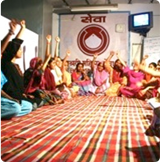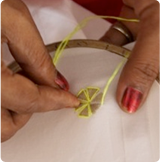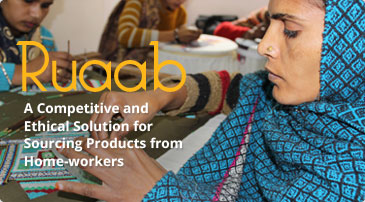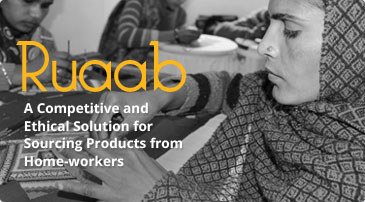SEWA Movement
Since 1972, SEWA is both an organization of poor women workers and a movement for them to create better alternatives.
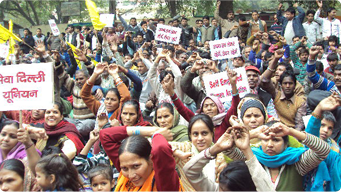
SEWA Delhi Mission
SEWA Delhi is committed to strengthening the movement of women workers in Delhi’s informal economy by highlighting their issues at the national level and building poor women members’ capacities.
SEWA Delhi organizes women workers and connects them to development programs so they are enabled to achieve full employment and self-reliance.
- Full employment means jobs that provide economic security, food security, and social security.
- Self-reliance refers to economic self–sufficiency and equitable roles in the decision-making process.
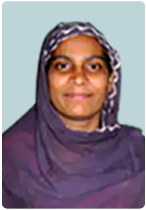
Sitara’s Story
Sitara, a Ruaab Sewa home-based worker, says :
Since working for SEWA, I feel like I am able to express myself.
Read full story
For migrant workers in Delhi, a new life is a welcomed change. But it comes with startling challenges. When Sitara and her family left their village in Uttar Pradesh, she never imagined the difficult living conditions they would face in Sundernagari, a former slum area on the outskirts of East Delhi. In the summer, the government water supply is cut, the ‘urban village’ residents are forced to drink from borehole tubing from the ground, and a sewage trench surrounding the colony is used for defecation.
On top of poor living conditions, economic stability is precarious and exploitative employment is the norm. Sitara’s husband, Nasir, found work as a daily wage laborer, but while expenses were regular, his work was not. Sitara needed to find a way to support her husband and four children. However, like many village women, Sitara had barely any schooling and no formal job training. She began embroidery work for irregular contractors who would pay her low piece rates. Despite supplementing the family’s income, Sitara found that her family was still suffering.
In 2005, SEWA Bharat opened a center for women embroidery workers. SEWA outreach workers approached Sitara about joining the center, but faced a common list of problems encountered when organizing poor women: the women’s lack of confidence, fear, and skepticism. Without training and education, poor informal women workers are frozen in the shadows of the mainstream market.
SEWA’s grassroots empowerment model helps given women like Sitara role models, confidence, and opportunities. Sitara joined SEWA’s embroidery center and began to earn a fair rate for her embroidery work – more than double what contractors paid. Sitara now supplements her family’s income by Rs. 2,500-3,000 per month. Sitara is also a shareholder in SEWA’s embroidery cooperative called the SEWA Ruaab Artisans Company. Sitara has tapped into SEWA’s diverse development activities and has three savings accounts in SEWA Delhi’s Thrift and Credit Cooperative.
Sitara’s advancement extends beyond economical and financial improvements; she now is confident and empowered. Sitara says, “Since working for SEWA, I feel like I am able to express myself.”
SEWA Delhi’s network of over 40,000 women have access to leadership building, finance training, and other social security programs that enable women to make positive changes in their communities.
SEWA Delhi advocacy for the rights of women workers in the informal sector is connected to the nation-wide advocacy of SEWA Bharat. SEWA Delhi is a crucial part of a wider SEWA movement to empower poor women workers around India.



